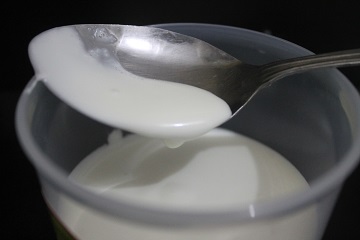IPB Researchers Create Vegetable Based Vegetable Butter

A team of researchers from the Department of Agroindustrial Technology, Faculty of Agricultural Technology, Bogor Agricultural University (IPB) made a prototype of butter (non-dairy butter) made from coconut raw with appropriate flavor concentration. The researchers are Prof. Khaswar Syamsu and Sindi Naulah.
This idea was motivated by the limitation of raw materials for making butter, which is milk. "One of the obstacles that affect the production of milk butter is the limitation of raw materials (milk). Dairy farmers produce only 5 to 10 percent of the needs of the people of Indonesia, the rest must be imported from other countries. Therefore, we need a substitute material for milk and that is coconut milk," said Prof. Khaswar.
According to Prof. Khaswar, the hypothesis was based that coconut milk has the same type of components as milk, which are fat, carbohydrates and proteins. So, vegetable butter can be made from coconut milk just like butter made from milk. The advantage of coconut based butter is it has lower price of coconut, as the raw material, than milk, does not increase cholesterol level in blood, and some fatty acid content in coconut can be beneficial to the body.
This coconut based butter can be consumed by people who are allergic to dairy products and people who do not eat animal products such as vegetarians, dietarians and vegans. In addition, coconut contains lauric fatty acid that can be beneficial to health because it is anti-bacterial, anti-fungal, anti-virus, can control bad cholesterol, and beneficial for heart.
The result shows that coconut butter has the potential to be developed into a substitute product for commercial butter (milk butter). This is because coconut butter has some advantages than milk butter. Coconut butter has the following characteristics: fat content 40.31%, protein content 4.08%, carbohydrate 1.39%, mineral content (0.99%) and lower number of bacterial contaminants. (RYF)



